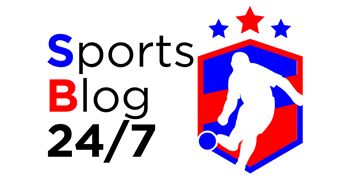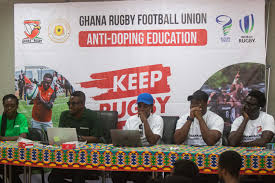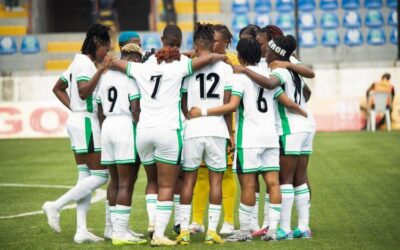An anti-doping seminar, organized by the World Anti-Doping Agency (WADA), was conducted for Ghana’s top rugby players and officials last Saturday in Accra. The seminar aimed to promote the importance of remaining drug-free and ensuring fair competition, especially with the upcoming 2024 Africa Women’s tournament, which will host 12 countries in November.
The Ghana Rugby Football Union (GRFU) recognized this event as a timely opportunity to educate key stakeholders about the dangers of doping, its serious consequences, and preventive measures. The seminar was led by the National Anti-Doping Committee, now recognized as a National Anti-Doping Organization (NADO) due to recent legislative changes, and operates a national secretariat located within the Accra Sports Stadium. There are also plans to introduce certification courses for athlete support personnel across various sports to help federations combat doping more effectively.
Prince Azanu, the officer in charge of anti-doping at the national secretariat, expressed satisfaction with the participants’ engagement during the seminar, describing it as a significant step forward for all sports disciplines. “This exercise is very important, and I was pleased with the participants’ responses, particularly during the Q&A session. As sports become more scientific, anti-doping efforts must remain a priority. We want to ensure that our athletes are well-informed about anti-doping issues, keeping them up to date with the latest trends globally,” Mr. Azanu remarked.
He noted that while the attendees demonstrated a solid understanding, there remains a need for further education, particularly regarding anti-doping rule violations and exemptions. “On a scale of one to ten, they currently sit at a 7. They need more education to stay updated with anti-doping developments. I believe more of these forums should be organized across all federations. Within a year, athletes and their supporters should have regular access to such discussions to ensure everyone knows the dos and don’ts of anti-doping,” he emphasized.
The seminar attracted 38 participants, and GRFU officials announced that it would become a regular feature on the calendar to ensure ongoing education. Rafatu Inusah, a Board Member of the GRFU, stated, “Anti-doping has been around for a long time, but global governing bodies are now treating it with utmost seriousness. It is essential for all countries to educate not only players but also coaches and everyone involved in rugby and sports. This is an excellent initiative that all federations should take seriously.”
She added, “We are committed to continuously educating our players, coaches, and volunteers about what they need to do or avoid to prevent doping violations in international competitions. This program will be a regular feature for all players, coaches, and officials every year or mid-year.”
Participants, including top players from both the male and female national 7s and 15s teams, along with coaches and technical officials from local rugby clubs, expressed their appreciation for the insights gained during the seminar. They are optimistic that this knowledge will help them navigate doping issues as athletes.





0 Comments